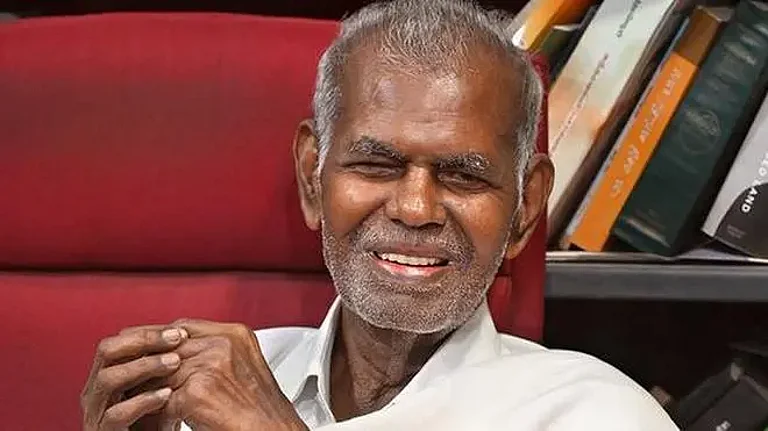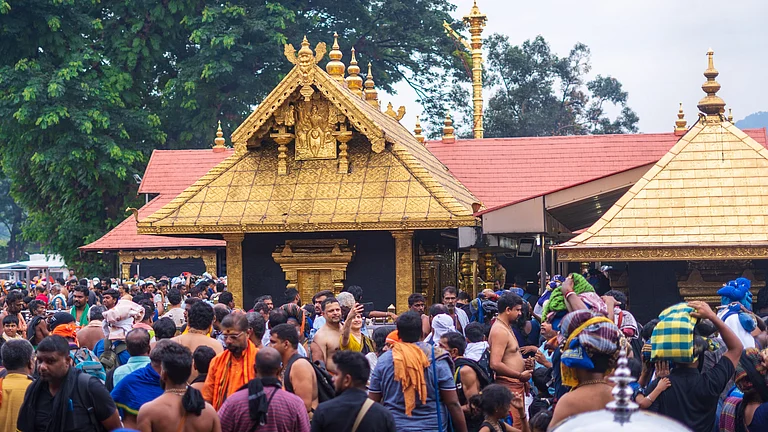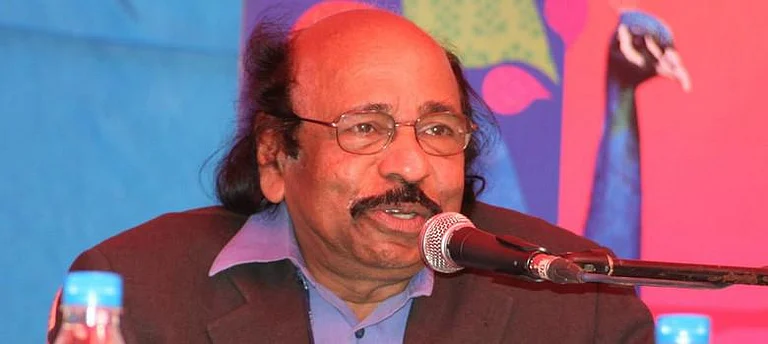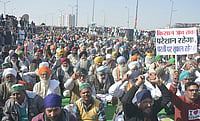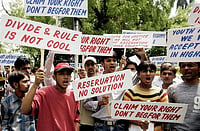When world number one men’s tennis player Novak Djokovic skipped the Miami Open tournament in the United States as he had not taken the Covid-19 vaccine, the issue of vaccine rejection and hesitancy also came to the fore.
This is one issue where even polar opposites —the sociopolitical Right and Left— arrive at the same conclusion with different reasoning. While some on the Left or in the Libertarian fold say bodily autonomy or limitations on the state’s control of their life runs counter to vaccine mandates, the Right sometimes cites religious reasons. Then there are also misinformation and conspiracy theories that have also found traction in recent years.
The issue further gets complicated as several pro-vaccination individuals, like billionaire Elon Musk, say that they have taken the vaccine and advise others to take the vaccine but are against the mandate, saying that taking the vaccine should be a personal choice.
In the absence of a direct cure for Covid-19 —as the treatment still largely remains as per symptoms— the vaccine was the frontline defence against death and illness from Covid-19. Since the beginning of the pandemic, the questions of personal freedoms, bodily autonomy, and the larger public good have clashed with each other.
Here we explore the various arguments on the issue and trace how Left and Right often converge in opposition to vaccine mandates.
Why are vaccines so important?
Vaccines are the primary medium to prevent death and serious illness from Covid-19.
Unlike the perception that often surfaces, Covid-19 vaccines were not aimed at stopping a person from catching the infection, but at preventing deaths and serious illnesses that drive you to hospitals.
Later, studies showed that infection spread —transmissibility— was also reduced to a good extent by vaccines.
“Covid 19-vaccines are effective at protecting people from getting seriously ill, being hospitalised, and dying. Vaccination remains the safest strategy for avoiding hospitalizations, long-term health outcomes, and death,” notes US Centers for Disease Control and Prevention (CDC).
Studies have also shown that as more and more people are vaccinated, individual protection rises to community-level protection, something often called ‘herd immunity’.
“It’s true that you can still become infected after being vaccinated, but once more of the population is vaccinated, those chances are further reduced thanks to something called herd immunity. So getting vaccinated not only reduces your chance of being infected, it also contributes to community protection, reducing the likelihood of virus transmission,” says the University of Missouri in a post.
Why do people deny vaccines?
Several reasons have been cited by people and organisations to not take vaccines, ranging from bodily autonomy to conservative religious views or distrust in the safety and efficacy of vaccines.
Opposition to vaccines —or mandatory vaccination— is also something seen on both sides of the socio-political spectrum, as also stated earlier in the piece.
The popularity of conspiracy theories and misinformation about vaccines is also why several people don’t take vaccines.
Some of the Left say that bodily autonomy allows them to reject vaccines and the state should not mandate vaccines. They argue that, just like carrying the pregnancy or aborting it, vaccination too should be a personal choice. Some Libertarians have argued that their belief in a limited government role in everyday lives disallows vaccine mandates. However, these views are not representatives of the entire side.
Citing a region in the United States, Eoin Higgins notes in The Atlantic, “Anti-vaxxers in the Taconics-Berkshires region include local organic farmers, members of homeschooling and alternative-education communities, anti-war hippies, and the occasional alt-right conspiracist. The anti-vax faction here has its roots in the left-libertarian politics of the Back to the Land movement, which flooded the area with the disaffected urban upper-middle class in the 1970s and ’80s. That influx of hippies and students, most of whom came from New York City, brought with it a political belief in naturopathy and a mistrust of institutional authority. Today, these crunchy anti-vaxxers are coalescing into a loose political group that is targeting COVID health measures and restrictions as indicative of governmental overreach and medical tyranny.”
Vaccine rejections among people, communities
Surveys have shown that vaccine rejection is linked to one’s social or political affiliation. It has also been found that certain groups are less likely to be vaccinated than the others.
A 2021 survey cited in a Brookings Institution article states that 90 per cent of Democrats had been vaccinated at the time of the survey, compared with 68 per cent of Independents and just 58 per cent of Republicans.
“Attitudes toward vaccinations are now fully integrated into the larger, seemingly intractable cultural divide in American society and between the parties. For this reason, between 15% and 20% of adults are unlikely to get vaccinated, even if they come under intensifying pressure to do so,” noted Brookings Institute’s William A. Galston in the article.
Several Christians reject vaccines as they are opposed to abortions and several vaccines have in the past used cell lines from previously aborted foetuses.
In parts of India, faith in religion over trust in science also worked against vaccination, according to a report in Al Jazeera. Citing the case of a village in Himachal Pradesh, the report said the villagers refused vaccines saying their deity would protect them. In Jharkhand, the report said some people rejected vaccines because they said ‘havan’ would protect them.
“According to the villagers, it took about five months of rituals, prayers and petitions for the deity to ‘convey its assent’ to the council for vaccination,” said the report, adding that even then the numbers did not increase.
“Despite the deity’s ‘permission’, only 1.8 per cent of the village’s population showed up for vaccination as villagers claimed Jagadamani Rishi [deity] spoke to them directly through a woman he had ‘possessed’ two days before the May 22 camp. The deity, through her, told them to shun vaccines as he would “protect” the village through ‘his divine powers’,” said the report.
Such beliefs, coupled with misinformation that the vaccine could make you impotent or cause heart-related issues, therefore works against the uptake of vaccination. This acquires importance as India is currently witnessing a surge in Covid-19 infections and the Union government has impressed upon the need for increasing the coverage of booster doses of coronavirus vaccines and has flagged the low coverage so far.







